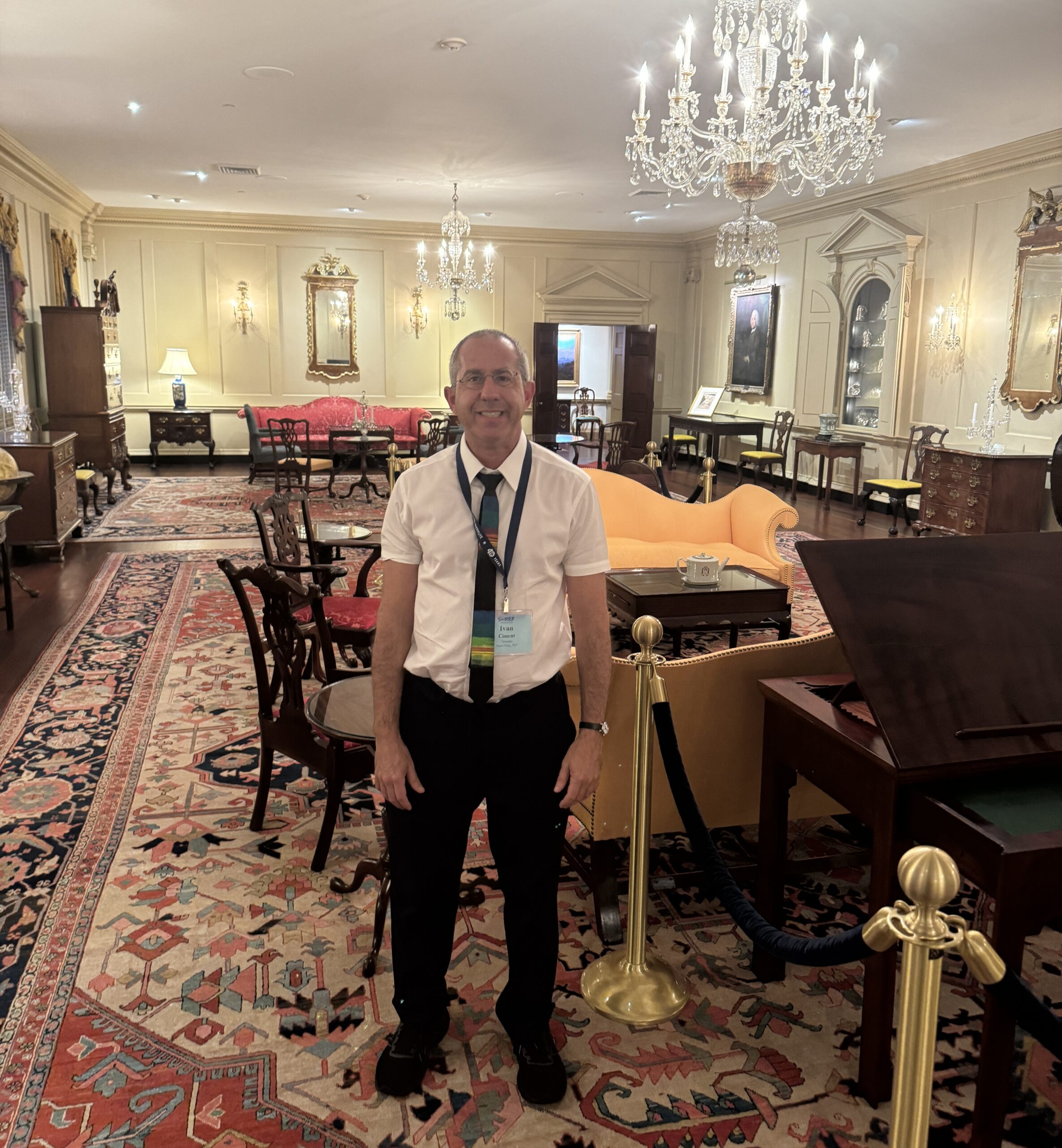Whether or not Congress passes an immigration bill this year, one provision in the senate bill which has received scant media attention contains a raise in the H1B quota for the coming year and a change in how the quota would be utilized. This facet of the bill is crucial to the nation’s economy and public discussion is absolutely necessary. Bill Gates, not known for lobbying in Washington, made a special trip this past month to discuss it. The issue is so important that it would be wise to consider passing it as a separate item and not lumping in with the political hot potato that is immigration. In order to do that, we must first understand what it is and stop looking at it as an immigration issue but rather as a competitive business issue viz. America and the rest of the world.
Most people are missing the point about the H1B program and our nation is suffering tremendously as a result. Opponents of the program do not realize that the very reasons they are opposed to it are the same reasons they should support it.
As a director of one of the nation’s leading credential evaluations companies, I personally review the credential files of approximately 20% of all applicants to the H1B program which puts me in a unique position to evaluate this program and tell you about the Big Picture. Hardly anyone else in the universe sees as many of these files as I do.
The H1B program allows skilled foreign labor to enter the US for several years to work and pay taxes and to be able to apply for a green card after several years. Applications are filed not by immigrants themselves but by companies that sponsor them which means that they must leave if they lack a sponsor. Credential evaluation companies such as ours are responsible for independently evaluating the credentials of such applicants to help ensure that they are truly skilled.
Opponents of the program state that (1) these people take away jobs from Americans because they are paid less and are therefore unfair competition; (2) are adding to the immigration burden caused by legal and mostly illegal immigration because they stay and don’t leave; (3) the program is a gift toward Big Business.
It’s not true.
H1B candidates go to large and small companies. They mostly have skills and temperaments we don’t and they are not necessarily cheaper. It is a full range of talent that defies easy generalization. Over 98% have university degrees and a good portion have doctorates. Many of these applicants have stellar credentials of 20-30 years of experience. Anyone staying at a 5-star hotel knows why resorts bring in H1B’s from Europe than the community college down the street. They do jobs, particularly Indians and Pakistanis in the area of computer programming, that Americans find boring. They are math and science teachers in public schools that lack them. Most of them leave after a few years because they are at the top of their game and these citizens of the world can and will work anywhere, but the attraction of being able to apply for the green card is a recruiting tool even if they don’t actually use it. Our small company employs H1B personnel; they all leave after several years and the one who is leaving now is being paid significantly more than the American who will replace her. Hardly any of them are in fields that are unionized, which is amazing considering how steadfast union opposition is to them. I believe unions and their members don’t understand the program because if they did, they’d be the first ones to support it. Here’s why:
Last week an executive from Ford told one of our directors that the main reason we can’t develop the next generation of fuel efficient cars in America is that the US doesn’t produce automotive engineers except in the one program sponsored by Ford in Michigan which only produces a few. The H1B program allows Ford to bring in such engineers. When they do, they build and/or activate manufacturing plants which creates or preserves thousands of jobs. Right now, the auto companies are closing plants and moving such research to plants abroad in countries such as Germany which has liberal immigration policies designed to attract the very same immigrants the US is thumbing its nose at. The major auto companies have plants all over the world; the US can’t afford to lose the chance to get these industry leaders.
The big mistake is that opponents of this program have framed the issue as one of immigration. Rather it should be viewed as a competitiveness issue. Under the theory that you have to spend money to make money, the idea here is that you import the best and brightest from around the world and they cause innovation, investment and jobs to be created right here. Most patents filed in the US are by foreigners and the presence of talent inside companies fuels innovation and supports jobs for everyone from assistants to construction personnel, local utilities and places of entertainment that feed off them, not to mention the increased tax base that results. An example is of a law firm of 3 lawyers needing 15 support personnel. The founders of Intel, Google, Sun Microsystems and Yahoo entered the US with H1B visas. Think of all the jobs and wealth across the board that they created.
Universities try to bring in professors and researchers under the H1B program and they’re having a bad time getting researchers. Chinese universities are out there making offers to bring in the best and perhaps you’ve noticed they’re now muscling in on all our industries from computers to cars.
It is an illusion to think that we can keep jobs inside America by locking out these people. Instead, we are creating so many hoops that people are outsourcing entire departments because it’s not worth it to keep them here if the anchors to those departments are kept offshore. Deutsche Bank just announced this week it was moving half its back office to India. So are many other banking firms.
For the past several years, the annual quota has been a political hot potato that is constantly in flux. Several times a year the rumor flies that the quota is being reached and all hell breaks loose in our industry because, when it does, the gates are shut till the following year while the issue is constantly being revisited by Congress with no resolution. Two years ago we had 3 rushes of case filings because of these rumors. Last year the quota ran out 4 months into the year beginning April 1 and this year the quota is expected to run out in the first week of June. This is chaos for companies that have to hire skilled labor or for a country that has to compete.
A 3-month season for applications also means that evaluations companies such as mine have a harder time keeping seasoned evaluators employed for the entire year. All around, the system is in shambles and must be fixed both for the benefit of the country and to maintain the integrity of the program.
A few years ago the quota was raised to 195,000 and about 115,000 visas were issued, meaning that there is a market-driven limit to this program exclusive of government quotas. The pool of such skilled labor is finite which is another important reason we shouldn’t dicker over an additional 50,000 legal visas per year to taxpaying people in this area which is tiny compared to the issue of millions of illegal aliens who don’t pay taxes. What makes sense is to accept Senator Arlen Specter’s proposal to raise the quota to 115,000 per year and introduce a market-driven mechanism into the application of the quota so that it shifts somewhat based on market forces as opposed to an arbitrary cap.
The H1B program needs to stabilize as a year-round rolling admissions system which will make it predictable for companies who hire skilled labor, evaluations companies that help maintain the program’s integrity and governmental agencies who will not be subject to peaks and valleys and constant fluctuations at the whim of Congress.
We need to change our view of this issue from that of lumping it into the bin of immigration reform and toward a niche program which makes American business more competitive in the world. Companies and members of Congress up for reelection are afraid to defend this program because opponents have labeled them liberals on immigration and made it impossible to explain to a person who has lost his job why someone else should be admitted. If such people want their stock market investments in their pension funds to make money as companies try to please their shareholders, they should think again. But thinking that closing the door on these 50,000 people a year and creating constant chaos for industry and government will save their job means they are truly missing the point.
Just to give some context: 1.4 million people a year from Canada and Mexico can enter the US each year via a visa created under NAFTA with less education than under the H1B program. But because NAFTA is viewed as a business rather than an immigration issue, it’s completely under the radar and nobody is talking about it.
If you want to reopen factories, put people back to work and ensure that America stays the world leader in innovation and production, the easiest and cheapest thing to do is to raise the H1B quota and let the market do its work for you. If the immigration bill fails, the H1B quota issue should be taken up separately and passed as soon as possible.
Ivan Ciment is a director of Morningside Evaluations and Consulting, a credentials evaluation firm in New York City.





